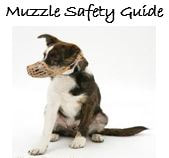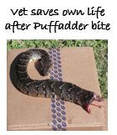NATURAL APPROACH TO CANCER
From our very own Alternative Specialist Vet Anuska Viljoen BVSc(Hons) VetMFHom MRCVS, who writes many of our Alternative Articles.
www.simplybrands.co.za
www.simplybrands.co.za
The cause of cancer is multi-factorial, i.e. not owing to a single problem or incident.
It is the end result of exposure to many different carcinogens and the body’s inability to defend itself from these carcinogens. It is obvious therefore that there are no single MAGIC BULLETS that will kill off and cure cancer. What we need is a multi-factorial approach to stabilise the body’s defence mechanisms as well as decreasing the exposure to potential carcinogens. Latest evidence shows that Radiotherapy and Chemotherapy can promote the spread of a cancer which has not yet spread, as well as cause cancer to begin in healthy tissue, thereby increasing the risk of a different cancer developing. You can do a lot for your beloveds with cancer by avoiding certain things and adding known anti-cancer nutritionals and herbal supplements. Here follows a list of things you can do at home.
To decrease toxic and carcinogenic stress we must:
1) Avoid smoke and smoky environments
2) Avoid food colourants and preservatives (most processed and kibble foods).
3) Change to a more natural Biologically Appriopriate Raw Food or BARF diethigh in natural cancer fighting nutrients and low in carbohydrates.
4) Avoid toxic build-up from processed food, including fried, pickled, smoked foods, dry and tinned animal foods and most treats. Give natural treats such as our natural Liver treats / T-Treats.
5) DO NOT VACCINATE – your animal has a compromised immune system and the vaccination will probably not be effective anyway. Vaccinations may aggravate cancer development and certainly add to the toxic load in the body. Some vaccinations have been linked to causing cancers.
6) Cut down on unnecessary toxins, such as strong anti-parasitic (flea, worm preps etc.) and conventional drugs. Consider alternatives which are less toxic. (See article natural approach to parasite control). Only use what is absolutely necessary – discuss with your Veterinarian
7) Take moderate, regular exercise, do not over-excercise
8) Increase dietary fibre – according to your Veterinarians instructions (oats – are a good source)
9) Avoid foods with a high glyceamic index (i.e. sugars and carbohydrates) including dry pellet food which mostly contains over 60% grains. Carbohydrates are known to feed cancer. Very few pellet foods are low in carbohydrates; the Earthborn primitive is grain free.
Diet:The ideal anti-cancer diet will leave cells swimming in a sea of anti-cancer nutrients
The best anticancer vegetables are the highly coloured ones.
The following foods are well known for their cancer protective substances:
Supplements:Add good quality, high bioavailability supplements as follows:
Specific Immune Stimulants:
Detoxification:
Specific organ protection and stimulation:
This depends on the organ in question and advice should be sought from a qualified homeopath or holistic practitioner. See the CVMG website for help to find one near you. CVMG is the complementary veterinary medicine’s group of south Africa.
Many of the supplements above are not available without specialised advise or prescription. And there are also many others available not mentioned here which may be helpful, depending on the individual situation.
You are welcome to contact Dr. Anuska Viljoen for a telephonic consultation for further help and advise. Contact her offices on 044 3431730 or have a look at her website.
It is the end result of exposure to many different carcinogens and the body’s inability to defend itself from these carcinogens. It is obvious therefore that there are no single MAGIC BULLETS that will kill off and cure cancer. What we need is a multi-factorial approach to stabilise the body’s defence mechanisms as well as decreasing the exposure to potential carcinogens. Latest evidence shows that Radiotherapy and Chemotherapy can promote the spread of a cancer which has not yet spread, as well as cause cancer to begin in healthy tissue, thereby increasing the risk of a different cancer developing. You can do a lot for your beloveds with cancer by avoiding certain things and adding known anti-cancer nutritionals and herbal supplements. Here follows a list of things you can do at home.
To decrease toxic and carcinogenic stress we must:
1) Avoid smoke and smoky environments
2) Avoid food colourants and preservatives (most processed and kibble foods).
3) Change to a more natural Biologically Appriopriate Raw Food or BARF diethigh in natural cancer fighting nutrients and low in carbohydrates.
4) Avoid toxic build-up from processed food, including fried, pickled, smoked foods, dry and tinned animal foods and most treats. Give natural treats such as our natural Liver treats / T-Treats.
5) DO NOT VACCINATE – your animal has a compromised immune system and the vaccination will probably not be effective anyway. Vaccinations may aggravate cancer development and certainly add to the toxic load in the body. Some vaccinations have been linked to causing cancers.
6) Cut down on unnecessary toxins, such as strong anti-parasitic (flea, worm preps etc.) and conventional drugs. Consider alternatives which are less toxic. (See article natural approach to parasite control). Only use what is absolutely necessary – discuss with your Veterinarian
7) Take moderate, regular exercise, do not over-excercise
8) Increase dietary fibre – according to your Veterinarians instructions (oats – are a good source)
9) Avoid foods with a high glyceamic index (i.e. sugars and carbohydrates) including dry pellet food which mostly contains over 60% grains. Carbohydrates are known to feed cancer. Very few pellet foods are low in carbohydrates; the Earthborn primitive is grain free.
Diet:The ideal anti-cancer diet will leave cells swimming in a sea of anti-cancer nutrients
- Simply Pets Beef
- Simply Pets Venison
- Simply Pets Chicken
The best anticancer vegetables are the highly coloured ones.
The following foods are well known for their cancer protective substances:
- Brassicas (cabbage, kale, cauliflower, broccoli, Brussels’ sprouts)
- Spinach , Bok Choy, Swiss Chard
- Tomatoes
- Red, orange and yellow peppers
- Radish
- Carrots
- Berry Fruits: Bilberry, blueberry, raspberry, blackcurrant, blackberry, elderberry, chokeberry
- Fenugreek
- Red Algae / Spirulena / sprouted greens
- Legumes (these must be cooked)
- Fermented Soya products – e.g. Tofu
- Oats, (this is a grain, so only small amounts)
Supplements:Add good quality, high bioavailability supplements as follows:
- Antioxidants: Nutri-pet , Vitamin C
- Multivitamin and Mineral Supplements including trace minerals: Cu, Zn, Se, Mn – Nutri-pet
- Essential Fatty Acids – esp. Omega-3 (FLAX OIL, Dermafocus, Mirra-cote, Salmon oil)
- Mixed Carotenoids: Caroteno oil
- Prebiotics and probiotics: Nutribiotic
- Glyconutrients:
- Others: OPC Flavonoids: Nutripet Immunity Complex
- Isoflavones:
- Methyl Group Donors: (BETAINE), Phospholipids, Protease Inhibitors:
Specific Immune Stimulants:
- Herbs: Carcinoguard, Immuzyme
- Medi-Mushrooms: Ganoderma (Reishi), Meitake
- Adaptogens: Prime 1 or Prime pet, Phytoguard
Detoxification:
- Milk Thistle Extract: Nutri-pet Milk Thistle, Hepafocus
Specific organ protection and stimulation:
This depends on the organ in question and advice should be sought from a qualified homeopath or holistic practitioner. See the CVMG website for help to find one near you. CVMG is the complementary veterinary medicine’s group of south Africa.
Many of the supplements above are not available without specialised advise or prescription. And there are also many others available not mentioned here which may be helpful, depending on the individual situation.
You are welcome to contact Dr. Anuska Viljoen for a telephonic consultation for further help and advise. Contact her offices on 044 3431730 or have a look at her website.
|
The answer from many a behaviourist and trainer may be 'A stuffy toy dog'! Jokes aside, if you are considering a dog for your family that has kids, do read this article.
|
Dog Muzzles can be a very helpful aid to a dog training program, but they can also be dangerous if used improperly. Our certified dog trainer and owner, Jess Rollins, wrote up these dog muzzle guidelines to help you decide if a muzzle is the right tool for you and your dog and to help make you aware of some of the potential problems.
|
Find out how this Sedgefield vet saved both her life and that of the dog after being bitten by this huge Puff Adder.
|




